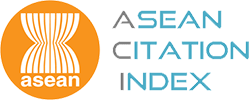THE ANALYSIS OF TRUST INSTRUMENTS IN MALAYSIA AS ISLAMIC ESTATE PLANNING: THE CHALLENGES AND EFFECTS
Abstract
Efficient and effective Islamic estate planning not only provides convenience to Muslim but also capable of driving national economic progress and development. One of the instruments of Islamic estate planning is trust instrument which is based on Civil Law. The effect of not implementing the trust at an early stage can be seen in the property acquired as it is not managed effectively and indirectly harms the beneficiary. Therefore, this study will try to identify what are the challenges in the implementation of trust, which is not implemented efficiently and looking at the effects of late Islamic estate planning during a lifetime. This study is a qualitative study by analyzing previous articles, related statutes, and looking at the application of trust instrument in trust institutions in Malaysia. To achieve the objectives of this study, the authors conducted interviews with officers at Amanah Raya Berhad (ARB), which is the largest Public Trustee in Malaysia and this year has reached the 100th anniversary of its establishment. The finding of the study found that the trust instrument has significant effects in assisting Islamic estate planning. In conclusion, Islamic estate planning during a lifetime should not be taken lightly by society as it is detrimental to the family and national economy.










